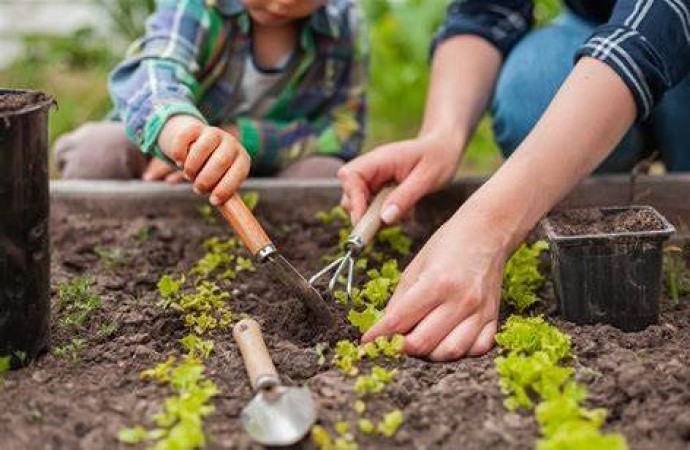
Gardening is a rewarding and fulfilling hobby that allows you to connect with nature while growing your own organic vegetables. Whether you have a spacious backyard or a small balcony, you can create a thriving vegetable garden right at your home. In this beginner's guide, we will take you through the essential steps and provide valuable tips to help you get started on your gardening journey.
1. Introduction to Gardening
Gardening is a wonderful way to connect with nature and experience the joy of growing your own food. It not only provides you with fresh and nutritious vegetables but also promotes sustainability and self-sufficiency. By growing your vegetables organically, you can avoid harmful chemicals and enjoy the purest flavors nature has to offer.
2. Choosing the Right Location
Selecting the right location for your vegetable garden is crucial for its success. Look for an area that receives at least six to eight hours of sunlight daily. Ensure that the spot has good drainage to prevent waterlogging, as excessive moisture can lead to root rot and other problems. Consider the proximity to a water source for convenience during watering.
3. Soil Preparation and Composting
Before planting your vegetables, it is essential to prepare the soil properly. Start by removing any weeds, rocks, or debris from the area. Loosen the soil using a garden fork or tiller to improve aeration and drainage. Incorporate organic matter such as compost or well-rotted manure to enrich the soil with essential nutrients.
4. Selecting Vegetables to Grow
When choosing vegetables to grow, consider your climate, available space, and personal preferences. Some beginner-friendly vegetables include tomatoes, lettuce, carrots, radishes, and herbs like basil and parsley. Opt for disease-resistant varieties to increase your chances of success.
5. Starting Seeds or Transplants
You can start your vegetable garden from seeds or purchase transplants from a local nursery. Starting from seeds allows you to have a wider variety of plants, but it requires more time and effort. Transplants, on the other hand, offer a head start and are ideal for beginners. Follow the instructions on the seed packets or transplant labels for proper planting depths and spacing.
6. Proper Watering Techniques
Watering is a critical aspect of vegetable gardening. Provide your plants with adequate moisture by watering them deeply but infrequently. Avoid overwatering, as it can lead to root diseases and waterlogged soil. Mulching around the plants can help retain moisture and reduce weed growth.
7. Providing Adequate Sunlight
Most vegetables require full sun to thrive and produce abundant yields. Ensure that your garden receives enough sunlight throughout the day. If you have limited space or shade in your garden, consider growing shade-tolerant vegetables such as leafy greens or herbs that can thrive with less direct sunlight.
8. Fertilizing Your Plants Naturally
Organic fertilizers are excellent for nourishing your plants and improving soil fertility. Use compost, aged manure, or organic plant-based fertilizers to provide essential nutrients to your vegetables. Avoid synthetic fertilizers, as they can harm beneficial organisms in the soil and disrupt the natural balance.
9. Managing Pests and Diseases
Preventing and managing pests and diseases is an essential part of organic gardening. Encourage beneficial insects like ladybugs and lacewings, which feed on garden pests. Regularly inspect your plants for signs of damage or disease, and take appropriate measures such as handpicking pests or using organic pest control methods if necessary.
10. Harvesting and Storing Vegetables
Harvest your vegetables at their peak ripeness to enjoy the best flavor and nutritional value. Different vegetables have specific harvesting requirements, so refer to individual plant guidelines for the best time to harvest. Properly store your harvested vegetables in a cool and dry place to prolong their shelf life.
11. Tips for a Successful Organic Garden
Conclusion
Growing your own organic vegetables through gardening is a gratifying and empowering experience. By following the steps outlined in this beginner's guide, you can cultivate a thriving vegetable garden right in your backyard or balcony. Remember to nurture your plants with care, stay attuned to their needs, and enjoy the journey of watching your vegetables grow from seed to harvest.
Discovering India’s Majestic Waterways: Top 5 Rivers
Upcoming films that you must see in 2023
Poland and Hungary Demand Rule Changes as EU Leaders Resume Migration Discussions